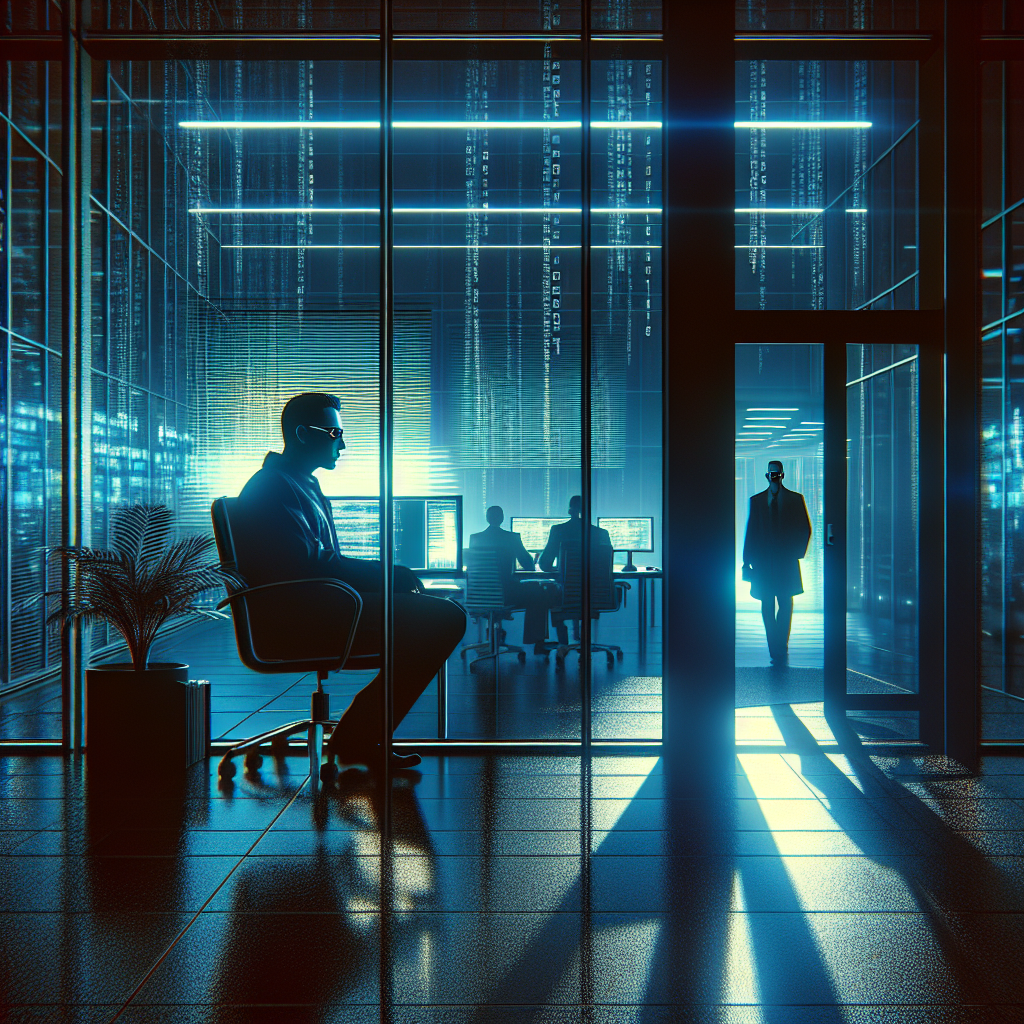Yo, future freaks and cybernauts of tomorrow—buckle up and strap in, because this pixel-drenched ride just veered hard into conspiracy territory. Forget the sleek digital utopias for a sec—our latest tale feels less like Silicon Valley and more like a page ripped from a sci-fi noir script. Let me introduce you to Keith O’Brien—the man, the myth, the corporate spy… who says the shadows are starting to follow him back.
Yeah, you read that right. One of Rippling’s confessed digital infiltrators just dropped a bombshell bigger than a quantum processor at a floppy disk convention. In a new court affidavit, Keith O’Brien claims men have been tailing him—and not the kind who swing by to network at industry expos in ironic hoodies. We’re talking old-school surveillance moves: “unmarked cars, slow-rolls, mirror shades” levels of spooky. His wife, according to the docs, is straight-up terrified.
Now folks, before we go pulling out our tinfoil beanies and building cyber-bunkers, let’s rewind for context—and it’s a wild ride. O’Brien was part of an operation allegedly designed to infiltrate Rippling (a workplace platform juggernaut with more APIs than a space station), and some say peel back data like an onion being skinned in a Blade Runner kitchen. Whether he was stealing client lists or decoding HR secrets like encrypted alien signals—well, that’s still shaking out in legal backchannels. But the point is: espionage is no longer just Cold War dinner theater. It’s happening in the boardrooms, the back ends, and yep, apparently, at brunch.
And sure, O’Brien played the spy game—but let’s not pretend this is all trench coats and encrypted briefcases. In 2024, corporate espionage lives in code commits, Slack channels, and that guy “shadowing” your LinkedIn with no visible mutuals. Still, O’Brien’s affidavit cranks up the paranoia dial to 11, suggesting that maybe—just maybe—Big Tech is now writing its own gritty surveillance dramas. Except instead of fax machines and Cold War files, we’re talking neural nets and biometric logins.
But here’s what grabs me, fam. Not just the cloak-and-dagger drama, but the human glitch inside the matrix: O’Brien’s terrified wife. Because, for all our talk of AI revolutions and spaceports on Mars, this reminds us that the future has tension built into its code. When you mess with the internals of major tech machines, the fallout doesn’t just hit alt accounts—it hits your life, your family, your sense of safety. In the accelerating blur where privacy’s a relic and data is gold, the punishment for crossing corporate firewalls may no longer just be legal; it might be psychological.
Don’t get it twisted—I’m not wearing a cyberpunk trench coat whispering “they’re watching,” but let’s not be naïve either. We’ve known for a while now that “disruption” isn’t just a startup’s motto—it’s a way of life. We hack the future, yes—but don’t forget, the future sometimes hacks back.
So what now, technonauts? Do we treat whistleblowers and spies as modern Prometheuses, punished for stealing flame from the server racks of giants? Or are they pawns in a meta-play where corporations treat NDAs like nuclear treaties?
Whatever your take, remember this: we’re living in the Age of Intelligence, artificial and otherwise. As boundaries between corporation and citizen dissolve into digital vapor, stories like O’Brien’s aren’t outliers—they’re origins. Origins of what? A techno-paranoia renaissance? A legal reckoning on corporate surveillance? Or just the next memeable scandal?
Whatever it is, you better believe Mr. 69 will be watching (digitally, of course).
Until next time, citizens of the code…
Keep your VPN tight and your curiosity tighter.
– Mr. 69 🚀







